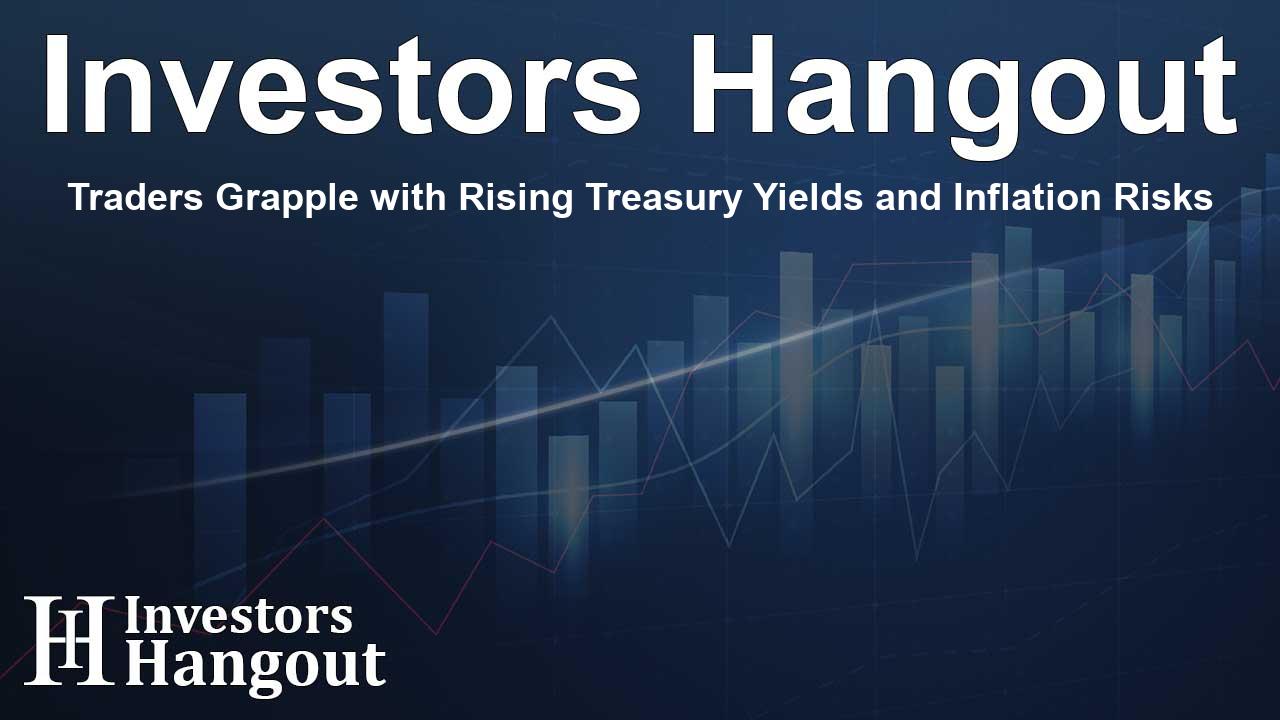Traders Grapple with Rising Treasury Yields and Inflation Risks

The Evolving Landscape of Interest Rates
The current economic environment has left many traders and investors contemplating the direction of the U.S. economy. With inflation concerns creeping back into discussions, the once-favorable "no landing" scenario—where the economy continues to thrive without hitting a recession—appears to be a hot topic once again. Preliminary data indicates solid job growth, decreased unemployment, and rising wages, which has shifted market perspectives.
Impact of Job Growth on Market Sentiments
A recent report highlighted the fastest job growth seen in months, leading many to reassess their expectations around interest rates. This unexpected surge has sparked fears about potential overheating in the economy, prompting a sell-off in the Treasury market. The result? Rising yields on U.S. notes and a reassessment of previously held positions by traders who were banking on lower rates.
Investor Sentiment on Rate Cuts
George Catrambone, head of fixed income at DWS Americas, explains that the market sentiment had been leaning towards the possibility of aggressive rate cuts, but market dynamics have since shifted. As the Fed weighs these economic signals, the previously anticipated easing measures might not materialize as once thought. Higher front-end rates, due to the lessened likelihood of rate cuts, have become the new norm.
Contemplating Economic Scenarios
As the Federal Reserve grapples with its strategy, the debate persists on whether the U.S. can achieve a soft landing—a scenario marked by deceleration without a full-blown recession. Prominent figures in economics, like Stanley Druckenmiller, have warned that the central bank should remain cautious, especially with inflation seemingly far from defeat. The consequences of the last significant cut in rates are under scrutiny, with some suggesting it could turn out to be a misstep.
Market Reactions and Strategies
In light of these developments, many investors are reconsidering their strategies. Tracy Chen from Brandywine Global posits that the recent substantial rate cut by the Fed, combined with fresh stimulus measures from China, hints at an environment conducive to the ongoing economic growth narrative. This evolution may negate concerns about recession and signify a potential move away from a soft-landing forecast.
The Role of Inflation in Economic Expectations
Inflation continues to be a focal point as crude oil prices have surged, causing anxiety about rising costs. The 10-year breakeven rate, which indicates inflation expectations, has recently jumped, suggesting that market participants are again paying close attention to price levels. The fragility of the current economic recovery is evident, and upcoming consumer price data will be crucial in shaping future Fed policy decisions.
Adjusting Strategies Amid Uncertainty
The current market signals imply traders should brace for potential shifts in the Fed's stance on easing. Notably, traders are starting to reconsider their positions with a total of 150 basis points of easing priced in through 2025, a significant reduction from earlier expectations. These declines reflect a serious recalibration of what lies ahead for interest rates as economic indicators deliver mixed signals.
The Importance of Upcoming Economic Data
As the situation unfolds, upcoming economic reports will play a pivotal role in determining the future trajectory of interest rates. Analysts and investors will closely monitor consumer credits, trade balances, and consumer price indices. Key metrics like these will provide the necessary insights to either reinforce or challenge the current economic outlook.
What Lies Ahead for Traders?
The recent fluctuations in the Treasury market serve as a reminder of the unpredictable nature of the current economic landscape. Baylor Lancaster-Samuel from Amerant Investments Inc. summarizes it succinctly—economic recovery can sometimes deliver unintended surprises, indicating the need for adaptability. With the volatility of the market, traders need to exercise caution and be ready for a myriad of scenarios.
Frequently Asked Questions
What is the "no landing" scenario?
The "no landing" scenario refers to an economic environment where growth continues without any downturn, defying predictions of recession.
How has job growth impacted market expectations?
Surging job growth has led to rising Treasury yields and reconsideration of anticipated interest rate cuts by the Fed.
What are the potential risks associated with Fed's recent decisions?
There are concerns that the Fed may face challenges maintaining interest rates too high for too long, leading to a larger economic downturn.
Why are inflation levels critical in this context?
Inflation levels significantly influence the Fed's policy decisions and market expectations regarding interest rates.
What economic indicators should traders watch?
Traders should monitor key economic data such as employment rates, consumer price indexes, and trade balances for strategic insights.
About The Author
Contact Lucas Young privately here. Or send an email with ATTN: Lucas Young as the subject to contact@investorshangout.com.
About Investors Hangout
Investors Hangout is a leading online stock forum for financial discussion and learning, offering a wide range of free tools and resources. It draws in traders of all levels, who exchange market knowledge, investigate trading tactics, and keep an eye on industry developments in real time. Featuring financial articles, stock message boards, quotes, charts, company profiles, and live news updates. Through cooperative learning and a wealth of informational resources, it helps users from novices creating their first portfolios to experts honing their techniques. Join Investors Hangout today: https://investorshangout.com/
The content of this article is based on factual, publicly available information and does not represent legal, financial, or investment advice. Investors Hangout does not offer financial advice, and the author is not a licensed financial advisor. Consult a qualified advisor before making any financial or investment decisions based on this article. This article should not be considered advice to purchase, sell, or hold any securities or other investments. If any of the material provided here is inaccurate, please contact us for corrections.
